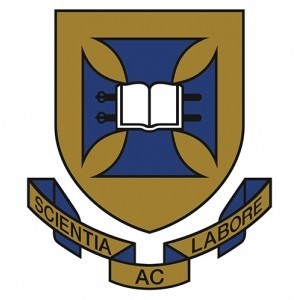Photos of university / #uoftmississauga
The Bachelor of Arts in Social and Behavioural Health Sciences at the University of Toronto offers students a comprehensive interdisciplinary education focused on understanding the social, behavioral, and environmental factors that influence health and well-being. This program aims to prepare students for diverse careers in public health, community development, health promotion, policy analysis, and research. Students will explore a wide range of topics, including health inequalities, behavioural science, health policy, epidemiology, and program evaluation, equipping them with the knowledge and skills to address complex health challenges in diverse populations. The curriculum combines theoretical foundations with practical applications, offering opportunities for experiential learning through internships, research projects, and community engagement initiatives. The program emphasizes critical thinking, cultural competence, and evidence-based decision-making, preparing graduates to contribute to health improvement efforts at local, national, and global levels. With a strong emphasis on interdisciplinary collaboration and social justice, students will develop a nuanced understanding of how social determinants shape health outcomes and learn strategies for effective intervention and advocacy. The degree also provides a solid foundation for those contemplating further studies in health sciences, public health, or related fields. Dedicated faculty members, state-of-the-art facilities, and a vibrant academic community support students throughout their educational journey. Graduates of the Social and Behavioural Health Sciences program are well-positioned to make meaningful contributions to public health policy, program implementation, research, and community health initiatives, ultimately fostering healthier and more equitable societies.
The PhD Program in Social & Behavioural Health Sciences (SBHS), including:
- Coursework
- Qualifying exam
- Thesis proposal
- Thesis defense:
A) Departmental Defense
B) Final oral examination – intended to give students depth and breadth in the theoretical and methodological foundations of Social and Behavioural Health Sciences.
- Coursework (reflects minimum requirements)
- 7 required courses
- CHL5005H: Introduction to Public Health Research
- 2 required theory courses
- CHL5101H: Social Theory and Health
- one of CHL5804H: Theories for Health Promotion and Public Health Intervention or CHL5102H: Social and Political Forces in Health Care
- 2 required methods courses
- To be selected according to the student’s interests and educational needs, in consultation with the supervisor.
- To obtain methodological depth in either quantitative or qualitative methods, it is expected that the student will take at least 2 courses in one of these two areas.
- For those interested in mixed-methods, in addition to taking 2 required methods courses, it is expected that the student will take other courses from qualitative and quantitative methods course offerings as necessary to achieve depth in both approaches.
- 2 electives
- Qualifying Exam
The qualifying exam (QE) should demonstrate the student’s capacity for independent scholarly work and creativity, ability to theorize a topic using a variety of approaches, ability to critically assess related empirical literature, and from these propose theoretically and methodologically sophisticated and consistent research questions that would advance the topic area and may be used for the dissertation. Through this process, the student will demonstrate capacity to identify, synthesize, and critique the literature within their chosen topic area.
The qualifying exam consists of:
i) a written paper
ii) an oral presentation of the paper
Detailed description of qualifying exam
- Thesis Proposal
The research proposal contains the following components: title page; abstract; problem statement and research questions; theoretical approach; critical review of relevant empirical research, including methods used; and research design.The thesis proposal must be reviewed and approved by the Thesis Committee before a student may proceed.
4. Thesis/Dissertation
The PhD dissertation must demonstrate an original contribution to scholarship. The nature of the dissertation is agreed upon by the supervisor and the student, in consultation with a Thesis Committee. The Student should aim to defend the dissertation within four years of entry into the PhD program. The defense of the dissertation will take place in two stages: first, a Departmental defense, second, a formal defense (the Final Oral Examination) before a University committee according to procedures established by the School of Graduate Studies (SGS). The two defenses generally are separated by at least ten weeks, although flexibility in timing may be possible.
4. A) Departmental Defense:
The Departmental defense will be held after the completed dissertation has been approved by all members of the Student’s Supervisory Committee, and the completion of the Departmental Oral Defense Report. The purpose of this defense is to rehearse the oral presentation for the SGS defense and to determine whether the Student is ready for the SGS defense.
The Student should expect constructive criticism about the clarity and length of the presentation and the quality of visual materials, as well as about the dissertation itself. In particular, the Departmental defense will confirm that:
- The Student has adequately met the requirements for a dissertation; and,
- The Student has the required level of understanding of the scientific issues involved in the dissertation work.The Departmental defense is attended by the Student, the Supervisor and other members of the Supervisory Committee, and two reviewers with full SGS appointments. At least one reviewer should have supervisory experience in social and behavioural health sciences at the doctoral level. The second reviewer may be a substantive expert from another discipline. Eligible reviewers will have had no prior involvement with the design or conduct of the research, with the exception of providing references or other background material, and generally will not be the faculty who served as reviewers at the proposal defense. The presentation will be advertised within the Graduate Department of Public Health Sciences, and other students and faculty are encouraged to attend.Click here for Departmental Defense Procedures
- B) PhD Final Oral Examination: Arrangements for the PhD Final Oral Defense and for the preparation of the final thesis are given at length in the SGS calendar. The dissertation and the necessary documents must be submitted at least eight weeks prior to the oral exam. See the Graduate Department of Public Health Science academic policies for forms and information for thesis preparation and defense.
- Master’s degree with research experience from a recognized university*
- A- (A minus) average in Master’s program in a relevant area of study
- Research experience
The University of Toronto offers a range of financing options for students pursuing studies in Social and Behavioural Health Sciences. Domestic students can apply for government-sponsored financial aid programs such as Ontario Student Assistance Program (OSAP), which provides grants and loans to help cover tuition fees, living expenses, and other costs associated with their studies. Additionally, many students secure scholarships and bursaries awarded based on academic merit, financial need, or specific criteria set by various faculties and external organizations. The university also offers internal scholarships that are competitive and sometimes targeted toward students demonstrating leadership, community involvement, or research excellence within the health sciences fields.
International students admitted to the program have access to limited external scholarships and sponsorship opportunities, and are encouraged to explore funding options from their home countries or international organizations. The University of Toronto also provides work-study programs, which enable students to gain practical experience while earning income to support their studies. Graduate students in the program may benefit from research assistantships, teaching assistantships, and fellowships, which offer financial support and often include tuition waivers or subsidies.
Students are advised to proactively seek advice from the university’s financial aid office and program-specific advisors to identify all available options. The cost of tuition varies depending on the program level (Undergraduate or Graduate), with undergraduate tuition generally being lower than graduate programs. Living expenses in Toronto should also be considered, including accommodation, transportation, textbooks, and personal expenses. Many students combine multiple sources of funding, including savings, part-time employment, and financial aid, to finance their education successfully. The university’s commitment to accessible education is reflected in its comprehensive financial aid offerings, designed to support students from diverse economic backgrounds in completing their studies in Social and Behavioural Health Sciences.
The Bachelor of Science (BSc) in Social and Behavioural Health Sciences at the University of Toronto is a comprehensive undergraduate program designed to provide students with a foundational understanding of the social, behavioral, and psychological factors that influence health and well-being. The program emphasizes interdisciplinary approaches, incorporating elements from psychology, sociology, public health, and other related fields to prepare students for careers in health promotion, community development, healthcare, and research.
Students enrolled in this program will explore topics such as health behavior theories, health disparities, social determinants of health, epidemiology, and the impact of cultural and environmental factors on health outcomes. The curriculum combines rigorous coursework with practical experiences, including community-based projects and internships, giving students opportunities to apply theoretical knowledge in real-world settings. This experiential learning component is designed to foster critical thinking, problem-solving skills, and cultural competence.
The program typically offers a blend of lectures, seminars, and independent research projects, encouraging students to engage actively with faculty and peers. Emphasis is placed on developing strong communication skills, ethical considerations in health sciences, and the ability to analyze complex social issues related to health. Graduates of the program are well-equipped to pursue further education in graduate or professional schools or to enter the workforce in areas such as health education, policy analysis, social services, or nonprofit organizations.
The university’s location in Toronto provides students with access to a diverse urban environment, offering numerous opportunities for field placements and community engagement. The program also benefits from the university’s extensive network of health-related research institutes and partnerships with public health agencies. Admission requirements typically include the completion of prerequisites in sciences and social sciences, along with a competitive high school GPA.
Overall, the Bachelor of Science in Social and Behavioural Health Sciences at the University of Toronto is a dynamic program aimed at students interested in understanding and improving health outcomes through social and behavioral approaches. It prepares graduates not just for immediate entry into the workforce but also for lifelong learning and leadership roles in health promotion and related fields.









